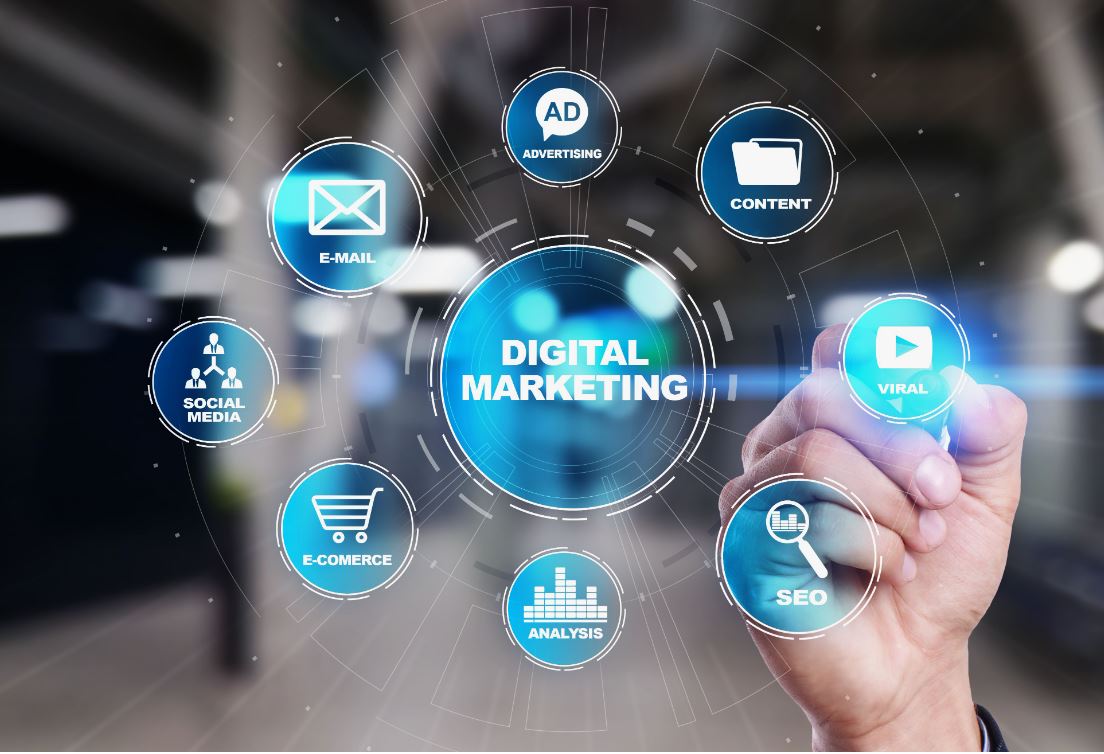
The pathways to becoming a digital marketer are as varied as the field itself. Whether you’re starting with a formal education, diving into self-teaching, gaining experience through internships in SEO services los Angeles, or leveraging professional experience, there are many ways to enter the world of digital marketing. Traditionally, these pathways have included earning a degree in marketing or a related field, gaining hands-on experience through internships, engaging in self-directed learning through online courses and certifications, and networking with industry professionals.
However, with the advent of artificial intelligence (AI), the digital marketing landscape is evolving, and so too are the pathways into the field. Skills in data analysis, AI, and machine learning, along with an understanding of how these technologies can be applied in marketing strategies, are becoming increasingly important.
This doesn’t mean that traditional pathways will become irrelevant. Instead, they will need to be supplemented with skills and knowledge specific to AI and its applications in digital marketing. In the coming years, pathways that incorporate AI education and practical experience with AI tools will become more relevant, preparing aspiring digital marketers for the tech-driven future of the industry.
How to Get into Digital Marketing: An Action Plan
1. Educate Yourself
Start by familiarizing yourself with the basics of digital marketing. Numerous free online courses and tutorials cover key areas such as SEO, content marketing, social media, email marketing, and PPC advertising. Platforms like Google Digital Garage, HubSpot Academy, and Coursera offer valuable resources to get you started.
2. Get Certified
Certifications can validate your skills and knowledge, making you more attractive to potential employers. Consider obtaining certifications like Google Analytics, Google Ads, and Facebook Blueprint. These are highly regarded in the industry and can help you stand out in a competitive job market.
3. Build a Portfolio
Practical experience is crucial in digital marketing. Start by creating your own blog, managing social media accounts, or volunteering to handle digital marketing for local businesses or non-profits. Use these projects to build a portfolio that demonstrates your skills and the results you’ve achieved.
4. Network
Networking is essential in digital marketing. Attend industry meetups, webinars, and conferences to connect with other digital marketers. LinkedIn is also a powerful tool for networking, sharing your projects, and engaging with industry content. Building relationships within the industry can open doors to mentorship, advice, and job opportunities.
5. Apply for Internships or Entry-Level Positions
Look for opportunities that offer hands-on experience, even if they’re unpaid internships. Real-world experience is invaluable in digital marketing and can often lead to full-time positions. Entry-level roles in digital marketing can provide a stepping stone to more advanced positions.
6. Stay Up to Date
The digital marketing landscape is constantly evolving. To stay competitive, follow industry blogs, podcasts, and influencers to keep up with the latest trends, tools, and technologies. Being informed about new developments will help you adapt and remain relevant in the field.
Mistakes to Avoid When Breaking into Marketing
1. Not Specializing
While it’s important to have a broad understanding of digital marketing, specializing in a specific area (such as SEO, PPC, or content marketing) can make you more attractive to employers. Specialization allows you to develop deeper expertise and can set you apart in a crowded job market.
2. Ignoring Analytics
Data drives digital marketing, and the ability to interpret and use analytics to inform strategies is critical. Failing to develop this skill can limit your effectiveness as a digital marketer and reduce your job prospects.
3. Overlooking the Importance of Networking
Networking is more than just meeting people—it’s about building relationships with industry professionals who can provide mentorship, advice, and job opportunities. Don’t underestimate the power of a strong professional network.
4. Failing to Keep Up with Industry Changes
Digital marketing evolves rapidly. Neglecting to stay updated on the latest trends, tools, and technologies can leave you behind. Continuous learning is essential to remain competitive in this fast-paced field.
5. Undervaluing Soft Skills
Technical skills are crucial, but so are soft skills like communication, creativity, and problem-solving. These skills are often what set top marketers apart from the rest. Make sure to develop and showcase these abilities in your portfolio and during interviews.
6. Not Building an Online Presence
Your online presence serves as a live portfolio. Not having a professional LinkedIn profile, a personal website, or a portfolio can be a missed opportunity to showcase your skills and passion for digital marketing. A strong online presence can help you stand out and attract potential employers or clients.
Final Thoughts
From a chance internship in digital marketing agency San Diego to leading performance marketing strategies, I’ve witnessed firsthand how dedication, continuous learning, and adaptability are essential for success in digital marketing. As the industry continues to evolve, those who embrace change, cultivate their skills, and adapt to new technologies will find themselves well-positioned for success. Whether you’re just starting out or looking to advance your career, following this action plan can help you navigate the dynamic world of digital marketing.